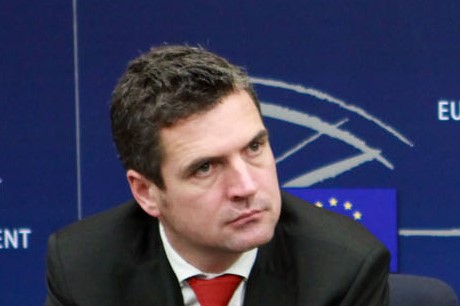The European Union’s post-2020 farm policy should be “smarter, simpler, fairer and more sustainable”, but also well financed and truly common to continue deliver food security in the EU. This is the conclusion of the European Parliament’s Agricultural Committee.
The committee on May 16 adopted a resolution containing a series of proposals on the reform of the Common Agricultural Policy (CAP) for after 2020.
“We need ambitious targets for the future EU farming policy,” said rapporteur Herbert Dorfmann (EPP, IT). “We need to guarantee secure supply of high quality food for EU citizens, better support for young, new and family farmers, to increase our farmers’ competitiveness – also by making farming smarter and more innovative, and better equip them to face market fluctuations. But this can be achieved only if the CAP remains truly common and well financed in the future. This is what we will fight for in the next CAP reform.”
According to a European Parliament press release, MEPs confirmed that EU member states should be allowed to adapt EU farming policy to their needs, but reject any renationalisation of the CAP, which could, they say, distort competition in the single market.
The MEPs also agreed that EU farm policy must rest on a common set of objectives, rules, tools and checks. Member states should design their national strategies on this basis and pick actions they feel best suited for them.
They also said that farming activities in all member states should be subject to the same EU high standards and their breach should trigger similar penalties.
Making EU farms more sustainable and fully integrated into the circular economy, fostering innovation, research and smart practices should be among the new CAP’s top priorities, according to the MEPs. To this end, they agreed that EU farm policy must be sufficiently funded, which means maintaining the CAP budget at its current level as a minimum.
The committee’s proposals will be tabled before the full House later this month.
According to Herbert Dorfmann MEP, who drafted the report, the EU’s agricultural policy needs adequate funding and new methods to be efficient and sustainable. “But let’s not fix it if it’s not broken!”
“The current CAP has shown that whereas greening had good aims, its methods produced more bureaucracy and harm for farmers than real results,” he said. “We now need a new method to incentivise farmers to deliver environmental goods. This must be done together with the overall simplification of the regulatory jungle.
“The EPP model is to safeguard local food production in family farms all over Europe. First and foremost, the resources are needed to secure the financing of the real farmers.”

